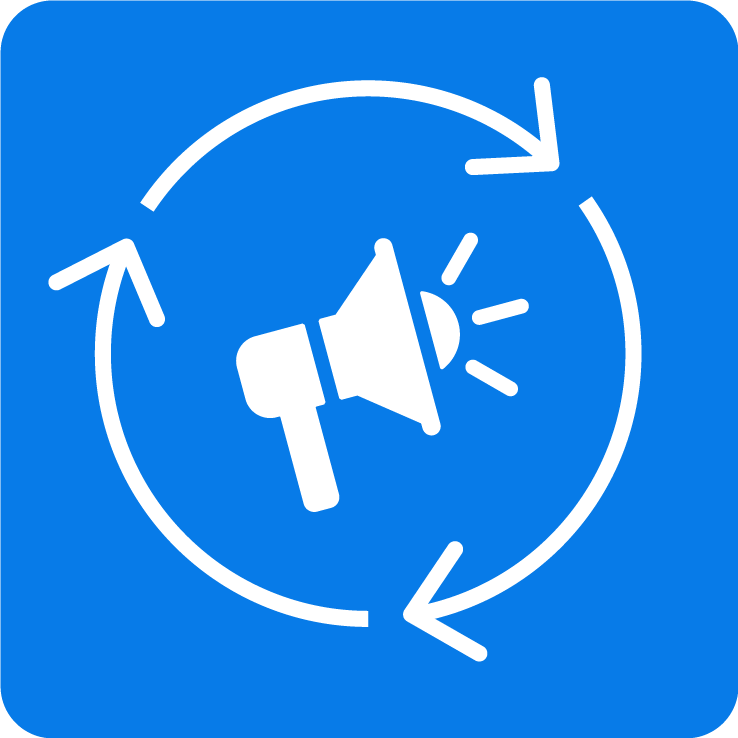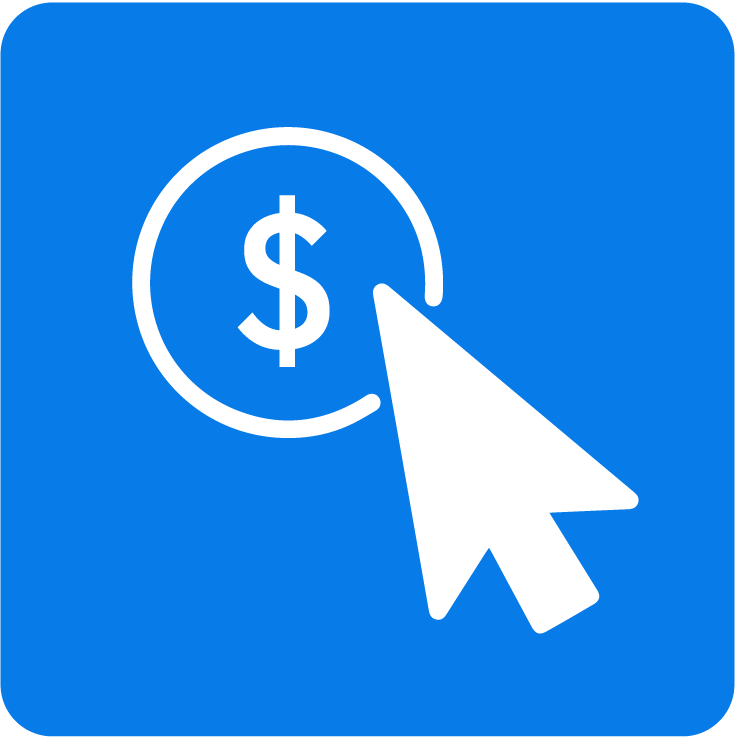- Create
- Market
- Scale
create
market
Sharing your expert knowledge in the form of an online course is a powerful way to earn an income without the typical overhead of a small business. But once you’ve created a valuable course that is gaining traction among users, you’ll need a concrete strategy for scaling your efforts and keeping your momentum. Course creators need to think of their knowledge as its own commodity – able to be demonstrated, packaged, and delivered in a convincing way. Read on for more details about how to successfully sell online courses.
Leverage Automation Tools to Build a Consistent Brand Image
Prove Your Expertise Through Valuable Content
Build an Email List with Lead Magnets
Selectively Invest in Online Advertising
Establish an Affiliate Marketing Program
Focus on Improving the User Experience
Market and Deliver Courses with Kartra All In One Software
The content and timing of your sales funnel, the promotional offers you run, and even your ideal conversion rate will depend on the structure and pricing model of your course. For example, evergreen courses require long-term strategies for retaining students, while a launch model requires high conversion rates and strategic brand-building efforts that culminate in heavy conversion tactics before each new launch.
Your pricing model also has a significant effect on marketing tactics. Offering your course for a one-time payment may require longer lead-nurturing tactics, and sales could be boosted by limited-time offers like percentage discounts. But if your course is available through a subscription package, you’ll want to figure out the most effective payment plan options. Before you develop a marketing plan, work out the pricing model that makes the most sense for your course.

One of the fundamental principles of good marketing is to build a comprehensive brand image around the product you offer. Branding includes your designed assets, how you promote your company, and the delivery of the course itself.
Every aspect of course marketing and delivery should tie back to a cohesive brand image that conveys who you are and the value you provide to clients. This extends beyond the immediate problem that your product solves. A brand image that resonates with your audience encourages a long-term commitment to your business as a whole.
While creating truly valuable course content is the cornerstone of building a loyal tribe, your course’s design, delivery, and marketing efforts all play a powerful role in reinforcing a user’s perception of your business. Automated marketing tools allow the modern course instructor to focus on what they do best – sharing expertise on a given topic – while presenting users with beautifully designed brand elements and consistent messaging.
Take advantage of email marketing software, pre-designed email templates, intuitive landing page builders, and other automated marketing tools that don’t require you to know how to write code or create designs. These tools help to present users with a consistent professional experience whether they’re taking your class, reading course materials, receiving emails, visiting your website, or interacting with you on social media.

Organic (non-paid) marketing campaigns are a crucial part of building a loyal customer base. These tactics include being active on social media, writing website content on relevant subjects, implementing best practices for search engine optimization (SEO), guest posting, or making guest appearances on other leaders’ podcasts or YouTube channels.
Organic content marketing is about playing the long game – establishing yourself as an authority on the subject you teach and gradually building trust instead of paying for someone’s attention. As your business grows, focus on the organic channels that make the most sense for your course topics, that are enjoyable for you, and that you can remain consistent with. Consistency with select channels will prove much more effective than having a sporadic presence on a wide variety of media.
Social media has become an important part of the digital marketing world, allowing businesses to interact with customers directly in a casual environment. Some course creators, for example, spend a significant amount of time networking and posting on LinkedIn since their business or leadership courses are geared toward entrepreneurs or executives.
Many other types of courses are intended for use outside of work hours. Experts who teach fitness, crafting, or personal development courses, may benefit from a steady presence on casual media platforms. Instagram, TikTok, or Pinterest are effective forums for sharing engaging video content that educates and entertains. Ultimately, what matters most in social media marketing is showing up where your target audience spends time and establishing a consistent presence there. Persistency on social media platforms will get you further than perfection.
Most product-led businesses have some way of giving their customers a way to try the commodity before buying it. Free samples, product demos, or giveaways are common methods for getting a future customer hooked on a particular product. But what if your product is intangible?
Course creators need to prove the value of their instruction through content that convinces users they will benefit from the full course. Live webinars, ebooks, whitepapers, video tutorials, sample modules, or free mini-courses are all excellent ways to demonstrate your expertise to your audience – letting them experience firsthand the value of what you offer. While some topical experts may be hesitant to “give away” knowledge, letting customers have a sneak peek into your product is a necessary expense for every industry and a crucial part of building trust with your customers.
As content becomes a more significant part of your online course marketing strategy, don’t forget to repurpose the valuable information you’ve already published. For example – you can repurpose webinars as whitepapers, break up blog post information to share in a video series, or turn a course introduction into a free giveaway. Producing content across multiple marketing channels is far easier when you reuse the work you’ve already done. And your library of useful content will only expand as your business grows.

Offering free content isn’t just for the benefit of potential students. Webinar sign-ups, pdf downloads, free course subscriptions, and other content types are valuable lead magnets, helping website visitors in return for their contact information.
Use these opportunities to build your email list and persuade potential customers to become eager students with strategic email sequences. Your email list is an extremely valuable asset to your business because you have sole ownership of the list!
Check out our guide: How to Use Email Marketing Automation to Catapult Growth

While there are many long-term benefits from organic marketing tactics, online advertising does have its place. Sometimes paid ads are the best way to break into a new audience and boost sales while your organic methods grow. These are the basic elements you need in place before you can run a successful advertising campaign:
It usually isn’t worth it for small businesses with limited budgets to run ad campaigns that promote the value of their course to the masses. To get the most out of your advertising budget, your ad campaign should focus on reaching a specific audience with a highly curated message that resonates with their values and pain points. If you’re unclear on what that audience or message should be, spend as much time as you need to in conversations, interviews, or surveys to really understand what resonates with your audience and what makes your best clients such successful case studies.
Online ads such as cost-per-click (CPC) ads come with diverse parameters that let you specify where your ads show up and to whom. Make sure you understand these settings and use them to your advantage – maximizing your ad budget and honing in on the most successful strategies. It’s worth the extra time to be certain of where your ad spend is going. Even if a campaign isn’t successful, you will have an idea of what to change or what to try next.
For example, if you run Google Ads or YouTube ads, make sure your ads are only showing up for keywords that are truly relevant to your course offering. Keyword research may reveal that relevant-sounding phrases have a different search intent than you realize. Or, if you run ads on social media platforms such as Facebook ads, take advantage of targeting (and re-targeting) tools to make sure you reach the people most likely to be interested in your course.
Online ads provide a hook that gets potential customers interested in what you have to offer, but e-commerce companies ultimately rely on their websites to sell their products. Pair your online ad with a targeted landing page that addresses exactly what your potential students need to know.
You’ll also need a persuasive sales page that clearly lays out what your courses offer, how much they cost, and what students can expect to gain from their education. Online shoppers, even for online learning “products”, expect brands to provide them with all the information needed to make a purchase decision. And it’s particularly important for a business that delivers its product online to create an intuitive, helpful experience for potential clients in the consideration stage. Their experience as a visitor to your website gives them a sense of what being your student is like.
Access to quality data analytics is a necessary part of launching an ad campaign. You’ll need to know how much the ads cost for each new customer (customer acquisition cost) and the revenue you get from each new student (customer lifetime value). And while it’s not an exact science, you should have a good sense of the buyer journey – how clients find you, how they engage with your content, and what prompts them to take your course.
These combined insights give you a window into how advertising fits into your overall marketing strategy. It could be that not many people purchase immediately after viewing an ad, but perhaps the ad was necessary to introduce them to your brand. Without clear metrics and customer insights, it’s very easy for ads to take up more of your marketing budget than intended. Or, your ads might successfully accomplish an unintended purpose – but if you’re unaware of it, you won’t know to replicate and make improvements. Many online advertising platforms promise you can “set it and forget it” – but monitoring your ads on a regular basis is the best way to see profitable results.

An affiliate program is a great way to build an army of salespeople without the expense of hiring employees. Course creators have a unique advantage when it comes to finding affiliates because there’s a network of past students to recruit.
Students are ideally situated to become course advocates, consultants, or tutors who can bring in new clients and be rewarded for their efforts. Affiliate marketing software lets small business owners easily onboard, pay, and manage these affiliates with minimal interruption to business operations.

One of the most important parts of scaling any brand is continually improving the user experience. Your students and clients need to feel that they get consistent, ongoing value from your brand that is worth their loyalty and investment of time and money.
Plus, the more your clients love their experience with your course, the more likely they will be to give referrals, positive reviews, or testimonials. This social proof is crucial for building your brand’s reputation and boosting course sales.
Surveys, quizzes, and customer interviews are great ways to get to know your users – what they like best about your course, what they wish was different, and other priceless information. These customer insights allow you to adapt your course design and new course offerings to align with your students’ values and pain points, allowing you to wisely invest your resources into the improvements your audience cares about the most.
Brands that make their customers feel individually noticed and appreciated create a long-lasting impression in their minds. And by emphasizing relationships instead of transactions, you will help your brand grow sustainably instead of building sudden interest that tapers off. For example, personalized thank-you notes, brand packages, or live events reinforce for your students that their experience with your brand is irreplaceable.
Many times, personalized elements are easily incorporated into existing sales funnels or brand communications. If your course comes with hard copies of textbooks, for example, consider how you can turn these shipments into personalized packages. And if you’ve started to gain a following on social media, incorporate live events like webinars or Q&As that let you personally interact with past, current, and future students.
Consider how an all in one marketing and membership platform can save you time and money while improving the quality of your course. Marketing and delivering your course within the same platform…
Kartra all in one software offers comprehensive features for course creators, including email automation and templates, form and landing page builders, and an affiliate management platform. Course creators pair these robust marketing features with the student membership platform, native video capabilities, and comprehensive data analytics. Kartra’s features span every functionality you need to effectively market and deliver your online course!
This blog is brought to you by Kartra, the all-in-one online business platform that gives you every essential marketing and sales tool you need to grow your business profitably – from sales pages and product carts to membership sites, help desks, affiliate management and more. To learn how you can quickly and easily leverage Kartra to boost your bottom-line, please visit kartra.com